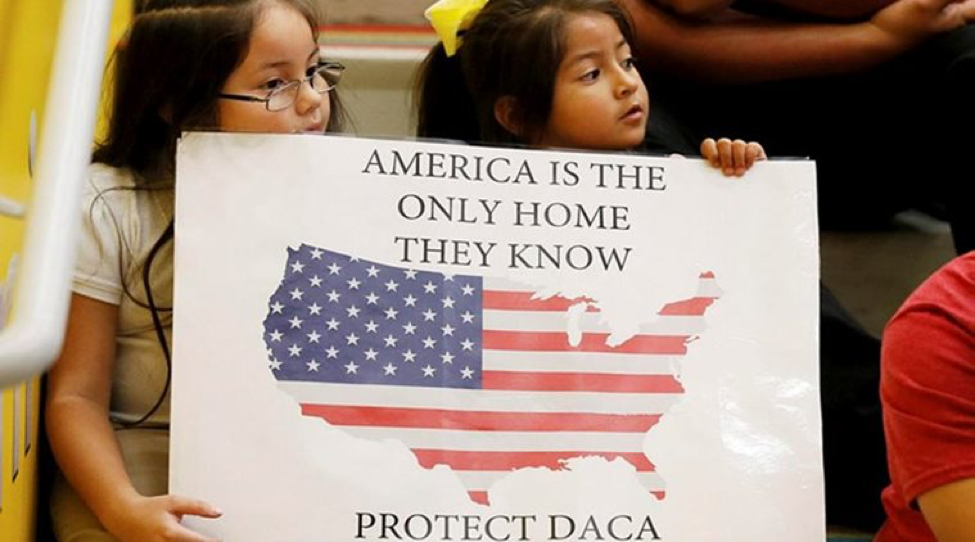By: Ariel Blanco
Alejandra was born in Mexico and was brought to the United States at the age of 5. As a high school student, she maintained a high GPA and scored exceptionally high on the SATs. Because she is undocumented, however, she could not access state or federal financial aid to offset the costs of higher education. Because her family could not afford tuition, Alejandra went to school full-time and worked full-time to pay for her studies and provide for her family. She graduated and went on to earn her Master’s degree in applied mathematics. Despite her accomplishments, no current viable path to U.S. citizenship or permanent residency exists for Alejandra and others similarly situated, and deportation to a country in which they have never lived, nor speak the native language in many cases, is always a possibility and cause for daily uncertainty.
The Deferred Action for Childhood Arrivals (DACA) was introduced on June 15, 2012, by the Obama administration under executive order. The program sought to defer immigration enforcement action against childhood arrivals who lived in the U.S. undocumented and met specific eligibility requirements. Contrary to popular belief, DACA did not grant undocumented immigrants a legal status, issue a green card, or provide a path to citizenship. It simply sought to prevent qualifying individuals from being apprehended, placed into removal proceedings, or deported.
Among the requirements to qualify for DACA were proof of arrival to the U.S. before the age of 16 and under the age of 31 before June 15, 2012, current enrollment in school or receipt of a high school diploma or GED, and no convictions for felony or misdemeanor offenses. It is estimated that 1.8 million undocumented youths and young adults were eligible for DACA. The deferrals were granted for two-year periods and could be renewed for additional two-year periods.
Before DACA, undocumented youths like Alejandra lived in the shadows of society with no identity. Many were born in Mexico and other Central American countries but were brought to the United States as children. Because they are brought at such a young age, many speak only English. They grow up in the US, go to school in the US, work in the US and take part in traditional American activities just like their US born counterparts. The only difference is they do so illegally, with no fault of their own, but because of their parents’ actions when they were kids. Although DACA did not ultimately resolve the problem of undocumented childhood arrivals, it did provide these vulnerable youths with temporary protection until meaningful immigration legislation could be passed.
On September 5, 2017, the Trump administration rescinded DACA, referring to the executive policy as an unconstitutional exercise of presidential authority. President Trump, however, gave Congress six months to create immigration legislation before DACA recipients started losing their protected status. Negotiators have indicated that any immigration bill would need to address four pillars: a plan to protect DACA recipients, funding for the border wall, the end of the diversity visa lottery, and a reduction in family-based migration. At this point, Congress has failed to pass legislation. Republicans cite that Democratic proposals protect too many DACA recipients, and Democrats cite that Republican proposals seek excessive funding for a border wall. The DACA extension officially expires on March 5. If Congress fails to introduce a bill, DACA recipients will return to the uncertain, unpredictable status they held before DACA, where they could arbitrarily be apprehended or deported from the US. For DACA recipients, America is the only home they know.
For more information please see:
U.S Citizenship and Immigration Services–Consideration of Deferred Action for Childhood Arrivals (DACA)— 2018
National Immigration Law Center–Stories in Defense of Deferred Action for Childhood Arrivals–2018
USA Today–What is President Trump’s Policy on Dreamers? It Keeps Changing— 7 February 2018
NPR–Trump Ends DACA, Calls on Congress to Act–5 September 2017
American Bar Association–Deferred Action for Childhood Arrivals–September 2013
